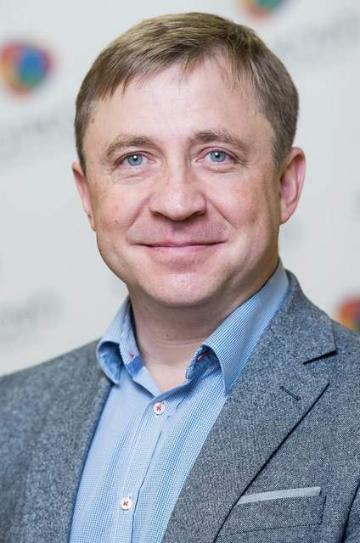The Russian Science Foundation supported the research of ISU scientists
10 April 2023
The Russian Science Foundation (RSF) supported the research of ISU scientists. Two projects were supported by grants, one of which is being carried out at the ISU Research Institute of Biology, and the Institute acts as a co-executor in the second.
The project “Microevolutionary changes in adaptive mechanisms of endemic amphipods of Lake Baikal” won in the competition for fundamental research of individual scientific groups. The amount of the grant is 7 million rubles (annually) for 3 years with the possibility of extension up to 5 years. Project leader Maxim Timofeev, Dr. of Biological Sciences, Director of the ISU Research Institute of Biology, explained that the research is aimed at studying the mechanisms of microevolutionary processes and adaptation to new environmental conditions of endemic Baikal amphipod:
“Lake Baikal provides a number of unique model groups of organisms for studying the diversity of speciation mechanisms, as well as the factors influencing them. Endemic amphipods, which according to current conservative estimates include more than 350 species and subspecies, have a record diversity among the inhabitants of Baikal. However, recent studies, including those carried out by the staff of our institute, indicate that the real diversity of Baikal amphipods may be significantly higher due to the presence of the so-called cryptic species (or twin species), and the evolutionary process in the lake is of a highly intensive nature.
We have chosen several model examples of the rapid adaptation of Baikal endemics to new environmental conditions: penetration into the greater depths of Baikal, settlement on shallow warm bays and “sory” [Baikal shallow bays with a sand bar], as well as expansion and evolution in the conditions of the fast-flowing Angara and Yenisei rivers. All these cases are followed with significant rearrangements in the adaptive mechanisms of Baikal endemics and often lead to the rapid formation of subspecies and even new species. It is to the study of these processes that our research will be directed.”
The second project “Smart control of the number of pests lepidoptera phyllophaga” will be carried out in the direction of interdisciplinary research by teams of three scientific organizations: Institute of Systematics and Ecology of Animals of Siberian Branch of Russian Academy of Sciences (Novosibirsk) – the lead executor, as well as Sukachev Institute of Forest of Siberian Branch of Russian Academy of Sciences (Krasnoyarsk) and the Research Institute of Biology of ISU, acting as co-executors of the study. The project is designed for four years with annual funding of 15 million rubles and the possibility of extension up to 7 years.
As Maxim Timofeev explained, “this project is being carried out under the guidance of our longtime partner, Cand. Sc. Biology Vyacheslav Martemyanov, Head of the Laboratory of Ecological Physiology, Institute of Systematics and Ecology of Animals of Siberian Branch of Russian Academy of Sciences. The project is a logical development of our long-term collaboration with colleagues from Novosibirsk, during which we are jointly developing the latest biologicals based on insect viruses against lepidoptera pests. This is a fully applied research, within the framework of biotechnological development carried out at our institute. We expect that as a result of the project, not only new scientific data will be obtained, but also a line of specific products ready to be launched on the market will be created.”
















